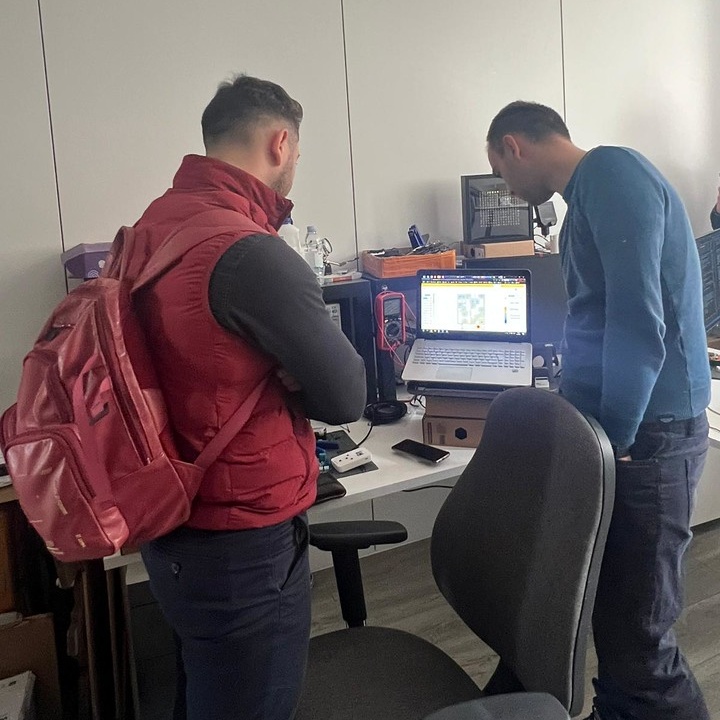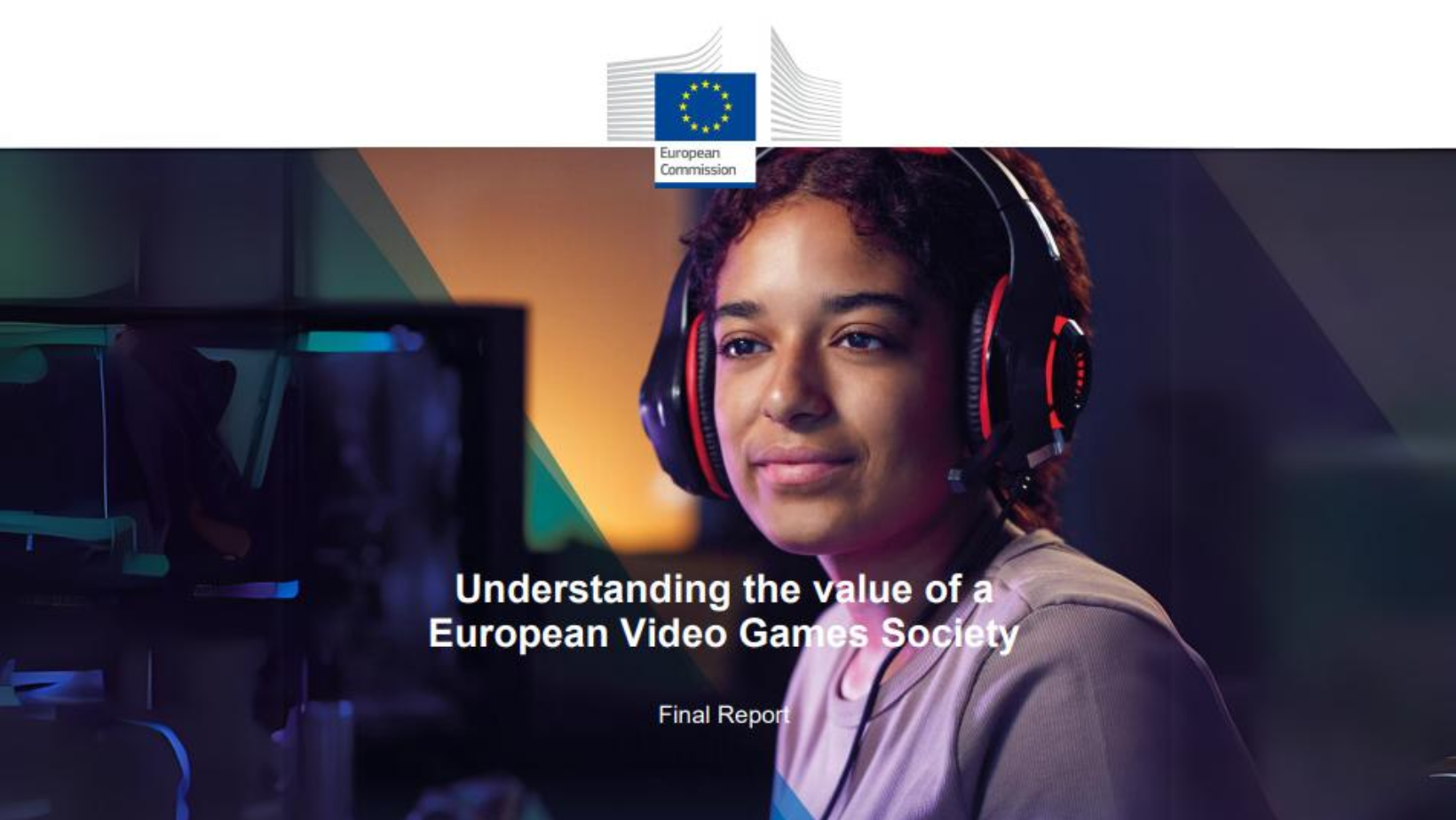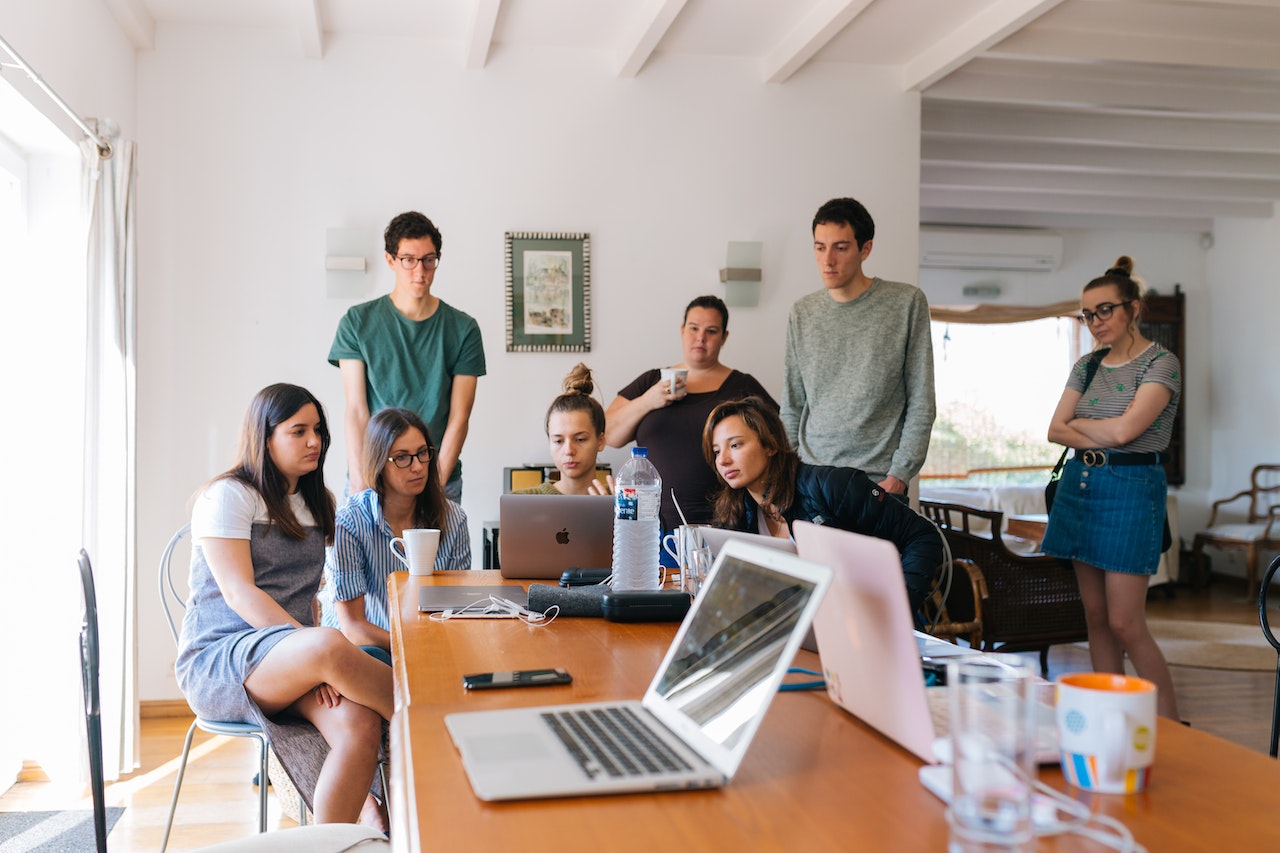Digital@Learning courses
Older people often lack the digital skills needed today, which can lead to their social exclusion. Similarly, older civil servants may find it difficult to keep a job for retirement or to take up a better-skilled job.
This is also why the Ministry of Investment, Regional Development and Informatisation of the Slovak Republic (MIRRI) and the National Coalition for Digital Skills and Occupations of the Slovak Republic (‘Digital Coalition’) are implementing a national project worth almost EUR 990 000 entitled ‘Improving the digital skills of seniors and disadvantaged groups in public administration’ (‘National project’). The aim of the national project is to develop and deploy a comprehensive IT testing and learning platform that will contribute to the sustainability of lifelong learning and to further improve the digital skills of selected target groups.
The national project targets the target group of older people aged 65 or over, those who have been awarded an old-age or invalidity pension, as well as civil servants from the age of 55.
However, MIRRI has prepared more calls and projects on digital skills, the effects of which should be brought together in one meaningful lifelong learning system. The project in which older people can access basic digital skills and an internet-connected tablet free of charge is well known, helping to increase the use of digital technologies by older people on the ground and thus improve their quality of life in today’s digital world. Our National Project also allows this course and the free acquisition of the tablet, making available to participants free of charge an IT learning platform for other projects in MIRRI and for future learning from any location in Slovakia, whether directly from the community centre of seniors, from accessible learning spaces, or directly and comfortably from home.
We offer partnerships for cooperation
The project is open to partners fulfilling one or more conditions:
- senior communities or public administration organisations and institutions that want to fulfil their mission to help develop digital (including other skills) seniors or civil servants can then apply for the courses themselves.
- training institutions which provide training facilities and, where appropriate, their staff as a tutor or assistant to trainee courses
- self-employed lecturers, emeritude educators or assistants of lecturers
- anyone for popularising and publicising the topic of improving digital skills
For many partners and their staff and community members, this project paves the way for systematic lifelong learning in the context of the needs of a modern digital world.
When and how to get involved
A survey of the needs of target groups, building an IT learning platform and filling it with digital learning content at the level of basic digital skills — i.e. preparing for education itself — is currently underway. As of September 2022, I will start planning and implementing digital skills courses for older people, including the possibility of obtaining a tablet free of charge. This will be followed by a VERMANY REPORT. Organisations and communities will participate in the National Project by signing a Memorandum of Cooperation, the scope of which will be specified in an annex.
(a) Seniors’ target group and PRELOPED GOODS CONTRACTING GOVERNMENTS
We have contacted selected, well-coordinated senior communities, as well as competent national, regional and municipal government institutions whose main task will be to motivate and organise their members or staff to take part in the courses offered, to propose a partnership for participation in the National Project.
As of September 2022, questionnaires and publicly available WEB (portal) and direct contact with a representative of the National Project Team will serve to register candidates and plan specific courses. Once the courses are run with the support of these partners, other individuals will also be able to apply individually.
(b) Training room for course implementation
Digital skills training will take place in suitable and accessible training rooms, at least in certified learning spaces, with equipment for the lecturer, his/her assistant and participants. We have reached out to a number of educational institutions which, by doing so, will expand their learning offer and thus be better able to fulfil the tasks inherent in their mission. Different community objects are also applicable if they meet the conditions for carrying out courses.
Different course orientations may require other technical equipment of the classrooms — this may be computers, tablets or personal smartphones. The minimum basis for equipment for all courses is a place for the lecturer, with access to a sufficiently powerful internet with a projector and a reflective screen. If the course is designed to work with a computer/notebook, we simplify the requirement for Windows 10 or 11 and sufficient internet/WiFi connectivity for all trainees. The partner’s training facilities are provided free of charge for the National Project as its activities.
The partner shall indicate in an annex to the Memorandum of Cooperation the parameters of the training space provided, the availability and the technical equipment.
(C) Leacher and assistant to trainee courses
This will not happen without a qualified lecturer. The detailed requirements for the lecturer will be set out in a separate document, but in principle a university degree 1 or 2 is required, an ideal qualification of a teacher, or an ICT worker, alternatively at least 5 years’ experience in learning/training activities in digital skills and ICT. Ideally, a lecturer in the National Project is provided from his own staff by the educational institution itself. However, an active senior teacher — a former educator with experience in informatics, or a near-school teacher or universities in their leisure time — may also become a lecturer in the National Project.
We can conclude an agreement with the lecturer to carry out the work and, for each hour of the course if it is conducted during his/her free time outside working hours, we can pay him/her the financial remuneration of the btto EUR 20/hour. The hourly rate of the assistant lecturer is btto EUR 15/hour, while the qualifications and experience of the assistant are not strictly defined (seniors also value assistants or student assistants). The reward serves only as a small incentive for a lecturer and educational institution to prepare for lifelong learning by participating in the National Project, for which significant funding from the Recovery Plan and the EU Funds is foreseen for future years.
We will conclude a memorandum of cooperation for the provision of a lettor or assistant to the assistant, specifying the person, his/her time capacities and preferences, with the partner providing your employee as a tutor. We will conclude an agreement with the lecturer and his/her assistant to carry out work for the tutorial. As part of the activities of the National Project, train lecturers and receive access to digital learning content, methodologies and instructions for course management, and we will communicate with it the timing of the courses.
(D) Popularisation, publicity, communication
The best intention must also be appropriate and communicated to the general public in the case of both the National Project and the public, in order to learn about digital skills courses and be able to engage with the general public. A non-one adult son or daughter is happy to buy a high-quality smartphone for their parents/seniors so that they can be in constant and visual contact, give them access to images of grandchildren and make their lives easier in general if they are to learn where to handle it efficiently.
This task can be effectively fulfilled by active representatives of senior communities or well-known representatives of the public administration. These activities are carried out on their own account or on the WEB pages and social networks of the Digital Coalition and MIRRI. We will conclude a memorandum of cooperation with partners for popularisation, publicity and communication on the activities of the National Project and we are ready to cooperate on their interventions.

FREE PUBLICLY AVAILABLE COURSES FOR OLDER PEOPLE
Since September 2022, we are gradually preparing basic free “digital courses” for older people. For beginners we count on face-to-face courses, more experienced participation in distance courses or some topics:
- FUNDAMENTALS: Internet and starter email — basics for working with computers (for classrooms equipped with computers or laptops with powerful internet access, equipped with OS MS Windows 7, 8, 8.1, 10 or 11 with updated internet browser — preferred Google Chrome, possible Mozilla, Firefox, Edge)
- FUNDAMENTALS: Basics for working with a digital device — for tablets, with the possibility to obtain a tablet free of charge (the senior will be trained on a tablet with an updated Android OS purchased by MIRRI, which can be retained in possession once the conditions of the course are met)
- FUNDAMENTALS: Mobile technologies for the elderly — your own smartphone (the senior will be improved in working with the self-contained smartphone with updated Android OS)
- ADVANCED: Computer literacy — working with Google for everyone (advanced course, for classrooms equipped with computers or laptops with powerful internet access, equipped with OS Windows 7, 8, 8.1, 10 or 11 with an updated internet browser — preferred by Google Chrome, possible Mozilla, Firefox, Edge, possibility to align with self-contained smartphone with Android OS, e.g. for working with photographs)
- ADVANCED: Advanced Information Security — Miscellaneous digital devices(consultation on the safe use of digital devices, course may specify the type of device — PC/mobil if equipped with a classroom, as well as its own tablet and smartphone — computers or notebooks with powerful internet access equipped with OS Windows 7, 8, 8.1, 10 or 11 with updated internet browser — preferred Google Chrome, possible Mozilla, Firefox, Edge, possibility to align with self-contained smartphone with updated OS Android, e.g. for working with photographs)
During the course, each senior is tested and obtained a nice certificate indicating the level of digital skills acquired. For more courageous or more demanding older people, we are preparing more demanding free courses and certifications:
- ADVANCED: ICDL Digital Citizens’ International Standard courses — working with computers, including MS Office (both ECDL/ICDL international standard course and preparation of an “International Computer Driving Licence”, designed for classrooms equipped with computers or notebook computers with powerful internet access, equipped with OS MS Windows 7, 8, 8.1, 10 or 11 with updated internet browser — preferred Google Chrome, possible Mozilla, Firefox, Edge and the current MS Office, may be Office 365 or Libre Office, or as required by https://www.ecdl.sk/softverove-prostredia-schvalene-pre-skusky)
- ADVANCED: Accredited test with the possibility to obtain an international ICDL certificate Digital citizen, or another selected certificate (carried out in specialised accredited test centres following the supervision of Commissioners, referred to as “International Digital Literacy Driving Licence”)
DEVELOPING DIGITAL COURSES FOR PUBLIC ADMINISTRATIONS
For REPORT, we are conducting a survey of digital skills needs at national, regional, municipal and municipal level, starting free courses 1-2 months later after seniors, with an expected focus on advanced levels of computer/notebook work. In fact, we do not foresee a ‘employee — digital analphabet’ in the public administration:
- improved work on MS Office (Word, Excel, PowerPoint)/Google Suite documents
- information security
- selected functions of the central public administration portal, electronic signature and seal
- IT foundations for municipalities’ mayors
- ECDL international certification by https://www.ecdl.sk/moduly-sylaby in accredited test centres https://www.ecdl.sk/akreditovane-testovacie-centra
- and other

CURRENT COURSE PROGRAMME AND APPLICATION OPTION
after the conclusion of the Memoranda with partners in the first decade of September 2022, we will bring you via the WEB page to which you will be directed.
Contact: tajomnik@digitalnakoalicia.sk
Participants in pilot courses can log in with their Google account and password:Digital@l courses (testing)



Beneficiary: Ministry of Investment, Regional Development and Informatisation of the Slovak Republic, Pribinova 25
811 09 Bratislava.
Partner: National Coalition for Digital Skills and Professions of the Slovak Republic, Mlynské nivy 5, 821 09 Bratislava.
National project: Improving the digital skills of seniors and vulnerable groups in public administration. ITMS code: 311071BLC3.
Place of execution: The whole territory of Slovakia.
Amount of NFA: EUR 962 842,11
Description of the project: A fundamental objective of the project is to create the conditions for increasing the level of digital skills of the population and mitigating the negative impacts of technology and digitalisation on society. At the end of the project, an environment with online distance learning functionality, e-testing and learning management with minimum operational and user entitlements for the target group as well as the solution operator will be created and validated. The target group of this project is citizens belonging to disadvantaged population groups, specifically civil servants over 55 years of age, invalidity and old-age pensioners who do not belong to the senior category (under 65 years of age, with recognised invalidity or old-age pensions), seniors (persons of old age, i.e. residents over 65 years of age), persons with a ‘HIC’. 13,000 target group representatives will be involved in testing the pilot solution.
Information on the Integrated Infrastructure Operational Programme 2014-2020 can be found at www.opii.gov.sk.
Saznaj više
-
Digitalna tehnologija / specijalizacija:
Digitalne vještine
-
Razina digitalnih vještina:
Osnovno
-
Geografski opseg - Država:
Slovačka
-
Vrsta inicijative:
Nacionalna inicijativa




